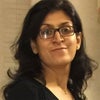This Venture Fund Wants to be a Founder's Thought Partner "We have got a deep range of experiences and networks that can be useful for entrepreneurs, when it comes to strategy-building"
By Ritu Marya
Opinions expressed by Entrepreneur contributors are their own.
You're reading Entrepreneur India, an international franchise of Entrepreneur Media.

Gone are those days when an investor was the antagonist of your start-up story, one who would just call the shots against your will.
Nowadays, investors bring in more than just the money on board and they know when to back off and let the entrepreneur lead his company.
Striking a balance between the two sides is Monk's Hill Ventures, a Series-B fund that is dealing mainly with start-ups operating in the South East Asian region. Entrepreneur India caught up with Peng T. Ong, Managing Partner, Monk's Hill Ventures, as he spoke about how they choose companies and what really interests investors.
Why Entrepreneurs-turned-investors Make for Better Choices
Running a Series-B fund means dealing with more matured companies, subsequently the investor then comes in at the scaling stage of the company. Monks Hill, too, looks at the companies that are coming out of the seed stage and are building revenue.
"If you are into seed funding, you've got to do too many deals. If you do Series B or Series C, then you are much more of a financial investor, you look into the profit and loss of the company and more. You are no more involved in building companies," said Ong.
Being entrepreneurs at one point in their careers actually give them an edge in better understanding the needs and wants of the founders. This helps them strike a balance as well. "We understand that we are going to be board members and are not going to be operators. But, we have got a deep range of experiences and networks that can be very useful for entrepreneurs, when it comes to strategy-building and execution. That's where we add most value," added Ong.
He went on to add that the nature of the fund is small because each partner can only deploy about $40-80 million over a period of time. While their current fund is of $80 million, their next fund will grow to $120 million. "We don't want to take a lot of money and then deploy it over-aggressively. So, we tend to be more conservative in our fund size," he explained.
Technology is the Differentiator
In the two-and-half-years of their existence, Monks Hill has already signed 14 deals from their current fund and is looking at finishing three more deals. All of this, before they start concentrating on building their next fund.
"We are looking at companies that can grow aggressively. We are looking at entrepreneurs, who are biting off big chunks of the economy and are making a difference with the use of tech," said Ong.
Talking about how tech enables a company to grow, he said, "I use a term that Warren Buffet uses – Moat. You have to build a moat around your castle. In today's times, the moat is probably proprietary information and technology. So, it enables you to build long-term differentiable business."
The company's advisors have studied hundreds of business models and are able to differentiate as to what will work and what won't. And that helps them in becoming thought partners for the founders, Ong stressed. Their experience in the business has helped them build a vast network of entrepreneurs, investors and mentors. "Networking is key to the success of a business," he underscored.
The Real Entrepreneurs vs The Tourists
We have moved beyond the times where start-ups were fewer in number and the funds were in abundance. Today, the roles have reversed. With the growing number of start-ups, the funds are slowly drying up. In such a scenario, how does one manage to stay relevant? —Ong has an interesting theory. "I have lived through the dotcom boom and its burst. In the Silicon Valley, during the burst, there was a saying, "the tourists have gone home'," he said.
There are a lot of people who are into start-ups because it's the "in-thing' to do, he said, adding, "And then, there are a bunch of us who are into start-ups because that's our life. I love the lull period because that forces the tourists to go home."
( Written by Sanchita Dash)










